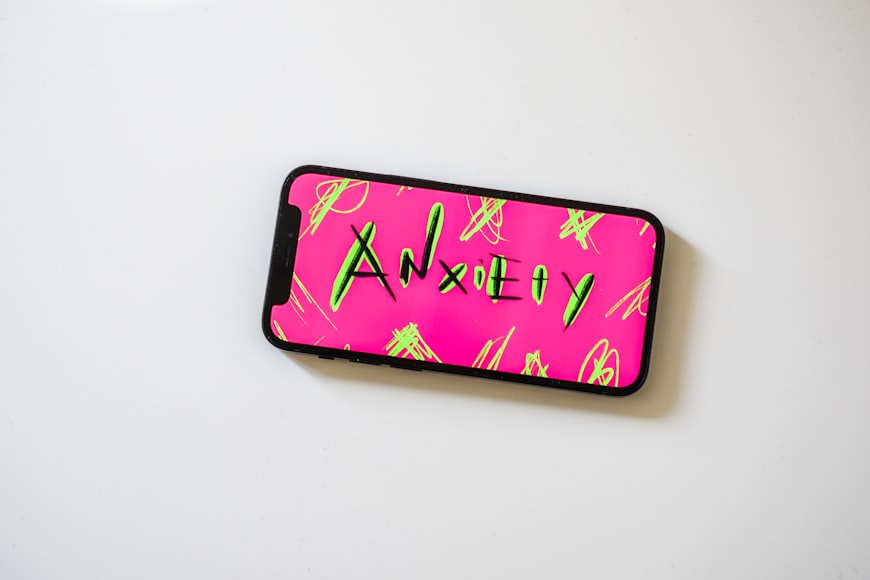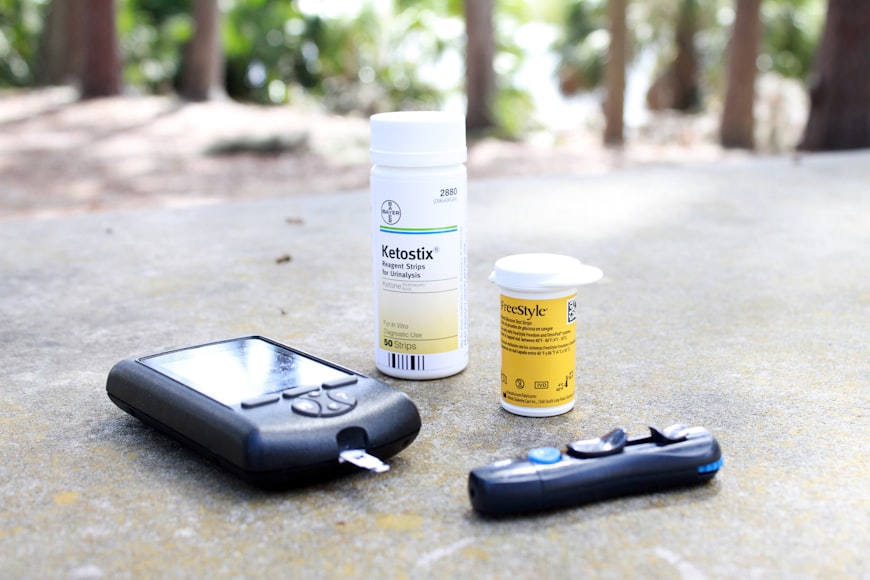I. Introduction

Introduction
Anxiety is a common and distressing condition that can affect dogs of all ages, breeds, and sizes. The prevalence of anxiety disorders in dogs is estimated to be around 20-40%, with some breeds being more prone to developing them than others.
Causes of Anxiety
Anxiety in dogs can stem from a variety of factors, both internal and external. Some of the most common causes include:
- Genetic Predisposition: Certain breeds, such as Australian Shepherds, German Shepherds, and Border Collies, are more likely to inherit a genetic predisposition to anxiety.
- Early Life Experiences: Negative experiences during puppyhood, such as separation from the mother, inadequate socialization, or exposure to traumatic events, can increase a dog’s risk of developing anxiety later in life.
- Medical Conditions: Pain, illness, or hormonal imbalances can trigger anxiety in dogs.
- Environmental Triggers: Changes in routine, unfamiliar surroundings, loud noises, and other environmental stressors can cause anxiety in some dogs.
- Learned Behaviors: Dogs can also develop anxiety through learned behaviors, such as associating certain situations or objects with negative experiences.
Symptoms of Anxiety
Dogs express anxiety in many different ways, depending on their individual temperament and experiences. Some common signs of anxiety in dogs include:
- Pacing or restlessness
- Panting or drooling
- Barking or whining
- Destructive behaviors, such as chewing or digging
- Hiding or avoiding social interactions
- Tremors or shaking
- Dilated pupils
- Stressed facial expressions
Traditional Anxiety Treatments
Veterinarians typically recommend a combination of approaches to treat anxiety in dogs. These may include:
- Behavior Modification: This involves identifying and modifying the environmental triggers that cause anxiety and teaching the dog coping mechanisms.
- Medication: Anti-anxiety medications, such as benzodiazepines and selective serotonin reuptake inhibitors (SSRIs), can be prescribed to help reduce anxiety symptoms.
- Natural Remedies: Some natural remedies, such as pheromone diffusers and herbal supplements, may provide some relief from anxiety.
CBD for Anxiety in Dogs
In recent years, cannabidiol (CBD), a non-psychoactive compound found in cannabis, has gained popularity as a potential treatment for anxiety in dogs. Studies have shown that CBD has anti-anxiety and calming effects, which may be beneficial for dogs with anxiety disorders.
How CBD Works
CBD works by interacting with the endocannabinoid system (ECS), a complex network of receptors and neurotransmitters that plays a role in regulating various physiological processes, including anxiety. CBD activates certain receptors in the ECS, which helps to reduce anxiety and promote relaxation.
Benefits of CBD for Anxiety
Using CBD for anxiety in dogs offers several potential benefits:
- Reduces Stress Levels: CBD has been shown to lower stress levels and promote relaxation in dogs.
- Improves Mood: CBD may help to elevate mood and reduce irritability in dogs with anxiety.
- Promotes Sleep: CBD can help to improve sleep quality and reduce nighttime anxiety in dogs.
- Supports Cognitive Function: CBD has neuroprotective properties that may help to maintain cognitive function and reduce anxiety associated with aging.
- Minimal Side Effects: CBD is generally well-tolerated by dogs, with minimal side effects.
Conclusion
CBD anxiety meds provide a promising alternative treatment for dogs with anxiety disorders. While traditional anxiety treatments can be effective, CBD offers several unique benefits, including reduced stress levels, improved mood, and minimal side effects. Before using CBD for anxiety in dogs, it is essential to consult with a veterinarian to determine the appropriate dosage and ensure that there are no contraindications with other medications.
II. Understanding CBD

II. Understanding CBD
A. What is CBD?
Cannabidiol (CBD) is a naturally occurring compound found in the cannabis plant. Unlike tetrahydrocannabinol (THC), the main psychoactive compound in cannabis, CBD does not produce a “high” or intoxicating effect.
B. Sources of CBD
CBD is extracted from either hemp or marijuana plants. Hemp-derived CBD contains less than 0.3% THC, while marijuana-derived CBD contains higher levels of THC.
1. Hemp-Derived CBD:
- Legal in all 50 states and federally
- Contains less than 0.3% THC
- Derived from industrial hemp plants
- Generally considered safe for dogs and has no psychoactive effects
2. Marijuana-Derived CBD:
- Legal in states where recreational or medical marijuana is legal
- Contains higher levels of THC (typically 5-30%)
- Derived from marijuana plants used for recreational or medical purposes
- May be illegal to use in dogs in some states and could potentially have psychoactive effects
Forms of CBD for Dogs
CBD for dogs is available in various forms, including:
- Oils: Liquid extracts that can be added to food or water
- Treats: Edible treats infused with CBD
- Capsules: Enclosed pills containing CBD
- Topicals: Creams or lotions applied directly to the skin
Benefits of CBD for Dogs
CBD has shown potential benefits for dogs, including:
- Anxiety relief: May reduce anxiety and stress in dogs
- Pain management: May help alleviate pain and discomfort
- Seizure control: May reduce the frequency and severity of seizures in dogs with epilepsy
- Inflammation reduction: May have anti-inflammatory properties
- Appetite stimulation: May stimulate appetite in dogs with decreased food intake
Safety Considerations
While CBD is generally safe for dogs, it’s important to use it responsibly. Consult with your veterinarian before giving CBD to your dog, especially if they have any underlying health conditions or are taking medications.
Dosage
The appropriate dosage of CBD for dogs depends on various factors, including weight, age, and condition. It’s crucial to follow the instructions provided by your veterinarian or the product manufacturer.
Conclusion
Understanding the nature of CBD and its sources is essential for responsible use in dogs. When administered appropriately under veterinary guidance, CBD may provide therapeutic benefits to dogs experiencing anxiety or other health concerns. However, it’s crucial to note that further research is needed to fully understand the long-term effects of CBD on dogs.
III. Benefits of CBD for Anxiety

Anxiety disorders are a common and distressing issue that can affect dogs of all ages and breeds. Traditional medications often have undesirable side effects, making them less than ideal for long-term use. However, recent scientific advancements have shed light on the promising potential of CBD (cannabidiol) for managing canine anxiety.
What is CBD?
CBD is a non-psychoactive compound found in the cannabis plant. Unlike its psychoactive counterpart THC, CBD does not produce a “high” or alter the dog’s mental state. Instead, it exerts its effects through interactions with the body’s endocannabinoid system (ECS).
Benefits of CBD for Anxiety
A. Calming Effects
One of the primary benefits of CBD for dogs with anxiety is its calming effect. Studies have shown that CBD can reduce activity in the amygdala, the brain region responsible for processing fear and stress. By modulating neural activity, CBD promotes a sense of relaxation and tranquility.
B. Reducing Stress and Fear
CBD has also been found to be effective in reducing stress and fear in dogs. It interacts with serotonin receptors, which are involved in mood regulation and anxiety suppression. By enhancing serotonin signaling, CBD helps to alleviate anxiety-related symptoms such as restlessness, panting, and pacing.
C. Sleep Improvement
Anxiety can disrupt sleep patterns, leading to fatigue and irritability. CBD has been shown to improve sleep quality by reducing anxiety and promoting relaxation. It helps dogs fall asleep more easily and stay asleep for longer periods.
D. Pain Relief
Chronic pain can contribute to anxiety in dogs. CBD possesses analgesic properties and has been found to reduce inflammation and pain. By alleviating physical discomfort, CBD can indirectly improve anxiety levels.
E. Other Benefits
In addition to its anxiety-reducing effects, CBD has also been shown to have antioxidant, anti-inflammatory, and neuroprotective properties. This makes it a potential therapeutic option for a wide range of conditions affecting dogs, such as arthritis, cancer, and neurological disorders.
Dosage and Administration
The appropriate dosage of CBD for dogs depends on a variety of factors, including the dog’s size, age, breed, and severity of anxiety. It is important to consult with a veterinarian before administering CBD to a dog. CBD can be administered orally, in the form of treats, capsules, or oil. It is recommended to start with a small dose and gradually increase it as needed.
Safety and Side Effects
CBD is generally considered safe for dogs. However, it is important to source CBD products from reputable manufacturers and follow dosing recommendations. Some potential side effects of CBD include drowsiness, diarrhea, and changes in appetite. If any adverse effects occur, it is advisable to discontinue use and consult with a veterinarian.
Conclusion
CBD is a promising natural remedy for anxiety in dogs. Its calming effects, ability to reduce stress and fear, and potential for improving sleep quality make it a viable alternative to traditional medications. By interacting with the body’s endocannabinoid system, CBD promotes a sense of relaxation and tranquility, helping dogs live happier and healthier lives.
IV. Administration of CBD

A. Methods of Administration
CBD (cannabidiol) anxiety meds for dogs can be administered in various ways, each with its own advantages and disadvantages. The most common methods include:
- Oral: CBD can be given orally in the form of pills, capsules, treats, or liquid tinctures. This method is convenient and allows for easy adjustment of dosage. It takes about 30-60 minutes for CBD to take effect orally.
- Sublingual: CBD can be absorbed through the mucous membranes under the tongue. This method is fast-acting, taking effect within 15-30 minutes. CBD drops or sprays can be placed under the dog’s tongue.
- Topical: CBD can be applied topically to the skin in the form of creams, ointments, or shampoos. This method is useful for localized effects, such as reducing pain or inflammation. Topical CBD is not absorbed into the bloodstream, so its effects are more limited.
- Inhalable: CBD can be inhaled through a vaporizer or nebulizer. This method provides fast absorption, but the dosage can be difficult to control. It is important to use a vaporizer specifically designed for CBD inhalation to avoid inhaling harmful substances.
B. Dosage Considerations
The appropriate dosage of CBD for dogs will vary depending on the individual animal, including their size, age, and condition. It is recommended to start with a low dose and gradually increase it as needed.
- Initial dose: A typical starting dose for dogs is 0.25-0.5 mg of CBD per pound of body weight, twice daily.
- Monitoring: Monitor your dog’s response to the CBD and adjust the dosage as necessary. If the anxiety improves, the dosage can be maintained or reduced. If there is no improvement, the dosage can be increased gradually.
- Consideration for specific conditions: Different conditions may require different dosages. For example, dogs with severe anxiety may need higher doses than those with mild anxiety.
Additional Considerations:
- Always consult with a veterinarian before giving CBD to your dog, especially if they have any underlying health conditions or are taking other medications.
- Use high-quality CBD products from reputable manufacturers.
- Store CBD products in a cool, dark place away from light and heat.
- Keep CBD products out of reach of children and pets.
- Monitor your dog for any adverse effects, such as drowsiness, lethargy, or digestive issues. If any adverse effects occur, discontinue use and consult with a veterinarian.
By carefully considering administration methods and dosage, you can ensure that your dog receives the optimal benefits of CBD anxiety meds. Remember to monitor your dog’s response and adjust the dosage as needed under the guidance of a veterinarian.
V. Safety and Side Effects

A. Overall Safety of CBD
Cannabidiol (CBD) is a non-psychoactive compound found in cannabis plants. It has gained significant popularity as a natural remedy for various conditions in humans and animals, including anxiety. Studies have shown that CBD can be safe and well-tolerated by dogs when administered appropriately.
The World Health Organization (WHO) has classified CBD as “generally safe and well-tolerated.” Dogs metabolize CBD differently than humans, and the recommended dosage and administration methods are crucial for ensuring safety.
B. Potential Side Effects
Although CBD is generally safe, it is important to be aware of potential side effects that can occur in some dogs. These side effects are usually mild and transient, but it’s essential to monitor your pet’s response and consult a veterinarian if any concerns arise.
Common Side Effects:
- Drowsiness: CBD has calming effects that can induce drowsiness in some dogs. It’s recommended to begin with a low dose and gradually increase it as needed.
- Gastrointestinal upset: CBD can affect the gastrointestinal tract in some dogs, causing nausea, vomiting, or diarrhea. It’s crucial to give CBD with food or treats to minimize these effects.
- Increased thirst and urination: CBD can increase the production of urine in some dogs, leading to increased thirst and urination.
- Allergies: Some dogs may be allergic to CBD, which can cause skin irritation, itching, or respiratory problems. If you notice any allergic reactions, discontinue use and consult a veterinarian immediately.
Less Common Side Effects:
- Liver damage: Long-term administration of high doses of CBD can potentially cause liver damage. It’s essential to follow the recommended dosage and not exceed it.
- Drug interactions: CBD can interact with certain medications, so it’s important to inform your veterinarian about all medications your dog is taking.
Factors Affecting Safety:
- Dosage: The dosage of CBD plays a crucial role in its safety. Too high a dose can increase the risk of side effects.
- Administration method: CBD can be administered orally, topically, or through inhalation. The appropriate method depends on the dog’s individual needs.
- Underlying health conditions: Dogs with underlying health conditions may be more susceptible to side effects from CBD.
- Breeds: Some dog breeds may be more sensitive to CBD than others.
Tips for Safe Use:
- Start gradually: Begin with a low dose and gradually increase it as needed.
- Monitor your pet: Pay attention to your dog’s response to CBD and contact a veterinarian if any concerns arise.
- Purchase from reputable sources: Choose CBD products from reputable manufacturers that provide third-party lab testing results.
- Inform your veterinarian: Always inform your veterinarian before giving your dog CBD, especially if they are taking any other medications.
Conclusion
CBD anxiety meds can be a safe and effective natural remedy for dogs when administered appropriately. By understanding the potential side effects and taking precautions, you can ensure the safety and well-being of your furry friend. It’s always advisable to consult a veterinarian before introducing CBD to your dog’s routine, especially if they have any underlying health conditions or are taking any other medications.
VI. Interaction with Medications
A. Interactions with Common Medications
CBD anxiety meds for dogs are generally safe and well-tolerated, but they can potentially interact with certain medications. It is crucial to consult with a veterinarian before administering CBD to your dog while taking other medications.
Some medications that may interact with CBD include:
- Anticoagulants (blood thinners): CBD can enhance the anticoagulant effects of medications like warfarin and heparin, increasing the risk of bleeding.
- Anticonvulsants: CBD may interfere with the metabolism of anticonvulsants, altering their effectiveness in controlling seizures.
- NSAIDs (non-steroidal anti-inflammatory drugs): CBD may increase the risk of stomach ulcers when taken with NSAIDs like ibuprofen and naproxen.
- Cytochrome P450 metabolized drugs: CBD can inhibit the breakdown of medications metabolized by cytochrome P450 enzymes, such as phenobarbital, prednisone, and cyclosporine. This can lead to increased levels of these medications in the body, potentially causing adverse effects.
B. Importance of Consulting a Veterinarian
Before giving CBD anxiety meds to your dog, it is essential to consult with a veterinarian. Your veterinarian can:
- Assess your dog’s medical history and current medications to identify potential interactions.
- Determine the appropriate dosage of CBD for your dog based on its weight, condition, and response to previous medications.
- Monitor your dog for any adverse effects and adjust the dosage or medication if necessary.
It is also important to inform your veterinarian about any supplements or herbal remedies your dog is taking, as these may also interact with CBD.
Tips for Safe Use:
- Follow your veterinarian’s instructions carefully when administering CBD.
- Do not exceed the recommended dosage.
- Store CBD in a cool, dark place to maintain its potency.
- Keep CBD out of reach of children and other pets.
- Observe your dog closely for any changes in behavior or health status.
- If your dog experiences any adverse effects, discontinue use and contact your veterinarian immediately.
By following these guidelines, you can safely and effectively use CBD anxiety meds to alleviate your dog’s anxiety while minimizing the risk of medication interactions.
VII. Alternative Options for Anxiety
Dogs, like humans, can experience anxiety in various situations. While prescription medications may be an effective option, there are also alternative strategies that can help manage anxiety in pets. In this article, we will delve into two alternative approaches: behavioral therapy and non-prescription anxiety supplements.
VII. A. Behavioral Therapy
Behavioral therapy aims to change the learned behaviors and associations that trigger anxiety in dogs. It involves working with a certified animal behaviorist or veterinarian who specializes in behavior. Common behavioral therapy techniques include:
- Desensitization and Counter-Conditioning: Gradually exposing the dog to anxiety-provoking stimuli while pairing them with positive experiences. This helps the dog associate the trigger with something pleasant rather than fear or anxiety.
- Positive Reinforcement: Rewarding the dog for calm and confident behavior, fostering positive associations and reducing anxiety.
- Environmental Management: Modifying the dog’s environment to minimize stress and anxiety. This may include providing a safe space, managing noise levels, or avoiding situations that trigger anxiety.
Behavioral therapy requires time, patience, and consistency. It is important to find a qualified professional who can tailor a personalized plan to address the specific needs of your dog.
VII. B. Non-Prescription Anxiety Supplements
While prescription medications can be effective, they may not be suitable for all dogs. Some non-prescription anxiety supplements offer natural alternatives that may help manage anxiety without potential side effects. These supplements typically contain ingredients such as:
- Chamomile: A herb with calming and sedative properties.
- L-theanine: An amino acid found in green tea that promotes relaxation and reduces stress.
- Melatonin: A hormone that regulates sleep-wake cycles and can reduce anxiety in some dogs.
- CBD (Cannabidiol): A non-psychoactive compound derived from hemp or cannabis that has anti-anxiety effects in animals.
When considering non-prescription anxiety supplements, consult with your veterinarian first. They can advise you on the appropriate dosage and potential interactions with other medications. It is important to ensure the supplement is sourced from a reputable company and contains high-quality ingredients.
Conclusion
While prescription medications may be a valuable option for managing anxiety in dogs, alternative approaches such as behavioral therapy and non-prescription anxiety supplements offer effective and natural strategies. Behavioral therapy addresses the underlying causes of anxiety, while anxiety supplements can provide temporary relief and support. By combining these alternatives with veterinary guidance, you can help your furry friend live a happier and less anxious life. Remember, every dog is unique, and the best approach will vary depending on their individual needs and preferences.
VIII. Choosing the Right CBD Product
When searching for the best CBD product for your dog’s anxiety, it’s crucial to consider quality, safety, and expert advice.
A. Quality and Safety Considerations:
1. Look for organic and certified products: Opt for CBD products made from organically grown hemp to minimize exposure to pesticides and chemicals. Seek products certified by reputable organizations like the USDA Organic and the U.S. Hemp Authority.
2. Check the potency: The potency of CBD products refers to the amount of CBD per serving. Start with a low-potency product and gradually increase the dosage as needed, following your veterinarian’s guidance.
3. Choose full-spectrum or broad-spectrum products: Full-spectrum products contain all the cannabinoids and terpenes found in the hemp plant, including THC. These products offer a more comprehensive therapeutic effect, but may not be suitable for dogs sensitive to THC. Broad-spectrum products contain most cannabinoids but not THC.
4. Examine lab results: Reputable CBD brands provide third-party lab results that verify the potency and purity of their products. These results should be freely available on the company’s website or upon request.
B. Consulting with a Veterinarian:
1. Discuss your dog’s symptoms: Provide your veterinarian with a detailed description of your dog’s anxiety symptoms, including the triggers, frequency, and severity. This information will help them determine the appropriate CBD dosage and product type.
2. Review your dog’s medical history: Inform your veterinarian about any underlying medical conditions or medications your dog is taking. This is essential to avoid potential interactions or contraindications.
3. Determine the correct dosage: Veterinarians can calculate the optimal CBD dosage based on your dog’s weight, symptoms, and individual needs. They can also guide you on the appropriate administration method, whether it’s oral, topical, or via treats.
4. Monitor your dog closely: Once you start administering CBD to your dog, monitor their behavior and any changes in symptoms. If you notice any adverse effects, such as lethargy, vomiting, or diarrhea, discontinue use and consult your veterinarian immediately.
5. Seek ongoing support: Regular check-ups with your veterinarian will allow them to monitor your dog’s progress and adjust the CBD dosage or product as needed. They can also provide guidance on managing your dog’s anxiety in combination with other therapies, such as behavior modification or medication.
By following these guidelines, you can ensure that you choose a high-quality and safe CBD product that is appropriate for your dog’s individual needs. Consulting with a veterinarian is crucial to optimize the use of CBD and maximize its therapeutic benefits for your anxious furry friend.




















